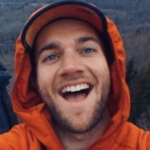Written by: Mark Wilson, MSW
With the pervasive influence of social media in our culture, we are robbed of the need to be present. We slip into a pattern of virtually shouting information instead of engaging humanity, fumbling for an independent voice amongst a sea of hollow opinions, and seeking a sense of community in a faceless space, all the while slowly losing our ability to listen.
My pursuit of a master’s in social work made it quite clear the power of being a listener. It wasn’t until I had the privilege of being supervised that I realized components were missing. A therapeutic relationship is not sustainable without the capacity to listen. Clients want to be heard but more so understood. Active listening* is taught consistently throughout a clinician’s education, but it lacks comprehension ability. Active listening is the chassis of the listener’s “vehicle,” but it’s missing a vital component, an engine.
Comprehension takes active listening a step farther. It understands the message and also the intended message. It allows a client to feel connected, express their emotions, and be reciprocated by the clinician in advocacy, not judgment. It’s important to note that speaking has its place but needs to be followed by a level of comprehension. The behavioral health space needs listeners, people that bring humanity back into the fold of a dialogue. Allowing voices to be heard and opinions to be shared will aid in the need for more human conversations in our loud, noise-filled world.
A challenge: Pick three conversations you have in a day to be consciously proactive in listening. Whether it is a business meeting, a scheduled check-in with a friend, or an encounter with a grocery store cashier, yield to sharing personal experiences, instead seek clarification, comprehension, and seeking the “why” of a person’s words. The hope is that you learn your listening tendencies and continue on a path of becoming a well-rounded listener.
*The process of listening attentively while someone else speaks and withholding judgment and advice.
About the Author

Mark Wilson, CSW serves as the Clinical Liaison for the Trusted Provider Network. He pursued his Masters in Social Work from Louisiana State University to better understand the behavioral health world. He hopes to continue TPN.Health’s goal of incorporating new and innovative technology to allow the mental health field to thrive in a digital world where access can be unlimited.
